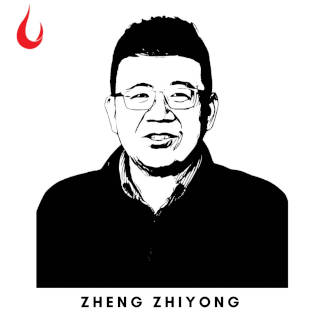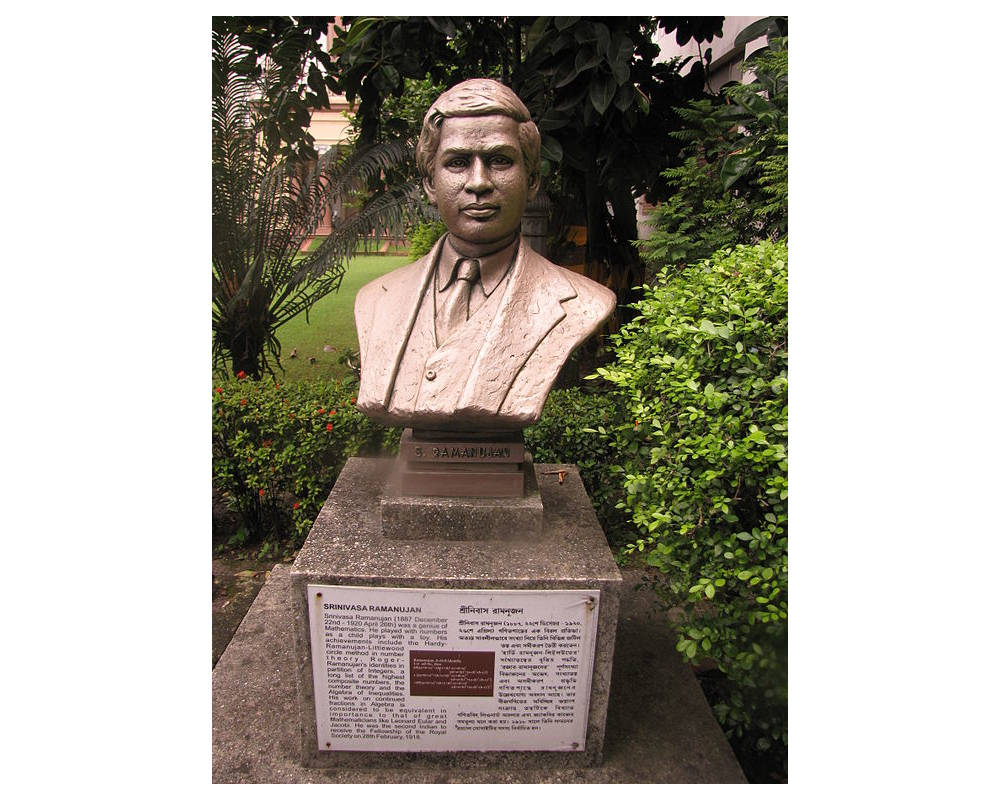[By AshLin, CC BY-SA 3.0, via Wikimedia Commons]
Good morning,
Towards the end of The Man Who Knew Infinity, a fascinating biography of S Ramanujan, Robert Kanigel writes about his lasting impact on several other intellectual giants. Kanigel writes:
“The astrophysicist Subrahmanyan Chandrasekhar grew up in Lahore, in what was then northern India, moved to Madras when he was eight, attended Presidency College there, then Cambridge’s Trinity College (where he met Hardy), went on to propose the theoretical underpinnings for black holes, and was awarded the Nobel Prize in 1983. In 1920, he was just nine years old, but he well recalls how one day in late April of that year his mother, reading about it in the newspaper, told him of the death of Ramanujan. ‘Though I had no idea at that time of what kind of a mathematician Ramanujan was or indeed what scientific achievement meant,’ Chandrasekhar would tell an American audience almost seven decades later,
I can still recall the gladness I felt at the assurance that one brought up under circumstances similar to my own could have achieved what I could not grasp.
The fact that Ramanujan’s early years were spent in a scientifically sterile atmosphere, that his life in India was not without hardships, that under circumstances that appeared to most Indians as nothing short of miraculous, he had gone to Cambridge, supported by eminent mathematicians, and had returned to India with every assurance that he would be considered, in time, as one of the most original mathematicians of the century—these facts were enough, more than enough, for aspiring young Indian students to break their bonds of intellectual confinement and perhaps soar the way that Ramanujan had.
“In the India of the 1920s, he would say at another time, ‘We were proud of Mahatma Gandhi, of Nehru, of [the Nobel Prize-winning poet Rabindranath] Tagore, of Ramanujan. We were proud of the fact that anything we could do would equate to anything else in the world.’ Within Indian mathematics, of course, Ramanujan’s influence extended correspondingly deeper. ‘I think it is fair to say,’ Chandrasekhar would observe, ‘that almost all the mathematicians who reached distinction during the three or four decades following Ramanujan were directly or indirectly inspired by his example.’ (One brilliant young mathematics student at Madras’s Presidency College, T. Vijayaraghavan, deliberately neglected his studies and failed his examinations, the more perfectly to follow in Ramanujan’s footsteps.)”
Ramunjan, who was born on December 22, 1887, continues to inspire millions of people, and his work continues to fascinate mathematicians. (In case you are interested, Manjul Bhargava, the R. Brandon Fradd Professor of Mathematics at Princeton University, will be talking about “some of the studies of Ramanujan that are most accessible to the general public, and how they fundamentally changed mathematics.” at 7:30 p.m. today. (More details on ICTS page)
Note: We are taking a year-end break starting December 24. You won’t get the FF Daily newsletters from December 25, 2020, till January 3, 2021.
We will be back with a great lineup of stories and conversations from January 4, 2021.
In this issue
- BCCI’s original sin
- How to sell finance in China
- The art of disinnovation
Have a great day!
BCCI’s original sin
Sharda Ugra raises important points in her Hindustan Times piece, and it couldn’t have come at a better time—days before BCCI’s AGM which will discuss the extension of the tenures of president Sourav Ganguly and secretary Jay Shah.

“Even if the new BCCI constitution did not have specific regulations referring to conflict, Ganguly’s approach to his BCCI position is problematic.”
One of the issues at hand, Edtech startup Classplus, which competes with Team India’s shirt sponsors Byju’s, has signed up Ganguly as brand ambassador. Similarly, fantasy gaming company My11Circle, which competes with Dream11, the 2020 IPL title sponsor, is also endorsed by Ganguly.
Ugra says, it’s an old game in Indian cricket. “Conflict of interest is BCCI’s original sin, which began the retrofitting of its constitution in September 2008, allowing N Srinivasan to own an IPL franchise. The matter was escalated into the Supreme Court by the BCCI after the Bombay High Court declared the board’s investigation into a 2013 IPL corruption scandal as illegal.”
Ugra’s criticism of Ganguly is scathing. “The position of BCCI president has been held by politicians, businessmen, lawyers, operators, hucksters. Never an India captain loved by millions. It is the new BCCI constitution that sent Ganguly to the top of Indian cricket, where his image and deeds could carry real influence. But his actions indicate that he’s chosen to cling on to power and build his own brand.”
Dig Deeper
How to sell finance in China
China, rather than the US, is often seen as a bigger influence on how Indian internet evolves. A recent Bloomberg piece captures how funds, influencers use tech to capture a piece of the ultra competitive Chinese financial market. “For foreign companies trying to break into, or win, a bigger slice of the market as China opens its financial sector, it can be an alien and at times bizarre environment,” Bloomberg writes.

“The Chinese model is quickly evolving from the old US model to an internet-based one”
“Among local finance influencers, few command as loyal a following as Zheng Zhiyong. A 10-year fund veteran, he operates personal accounts on multiple platforms under the nickname ‘Wangjing Bogle,’ an homage to Vanguard founder and index fund legend John Bogle. Based in Bejing’s Wangjing tech hub, Zheng has almost 500,000 followers on Alipay and more than 200,000 on China’s Xueqiu, an investment-focused, Reddit-type site, and 1234567.com.cn.
“Almost 3,000 members pay him 1,000 yuan ($153) a year for access to his daily investment picks. Zheng chooses lower-fee funds, like certain exchange-traded funds, for his portfolio and buys on internet platforms, which often offer low subscription fees compared with bank channels. He says this gives his followers a cost advantage in the long term over banks and other distributors who tend to pick higher-fee products to earn higher commissions.
“Zheng is also paid to host livestreams. Part cheerleader, part quizmaster, he’s paid about 20,000 yuan by asset managers to co-host segments with their fund managers. While regulations prohibit him from offering investment advice, he brings a significant following. ‘The Chinese model is quickly evolving from the old US model to an internet-based one,’ he says.”
Dig Deeper
The art of disinnovation

(Via WhatsApp)
Tell us what you think and find noteworthy. Head over to our our Slack channel.
And if you missed previous editions of this newsletter, they’re all archived here.
Bookmark Founding Fuel’s special section on Thriving in Volatile Times. All our stories on how individuals and businesses are responding to the pandemic until now are posted there.
Warm regards,
Team Founding Fuel
(Note: Founding Fuel may earn commissions for purchases made through the Amazon affiliate links in this article.)

